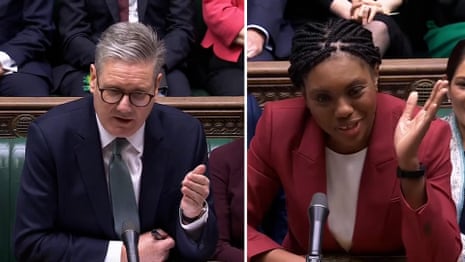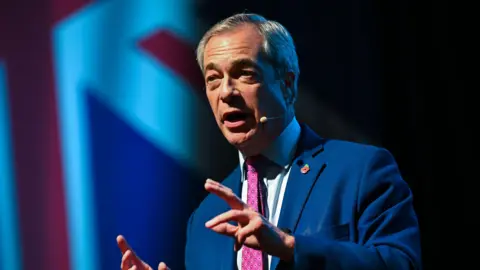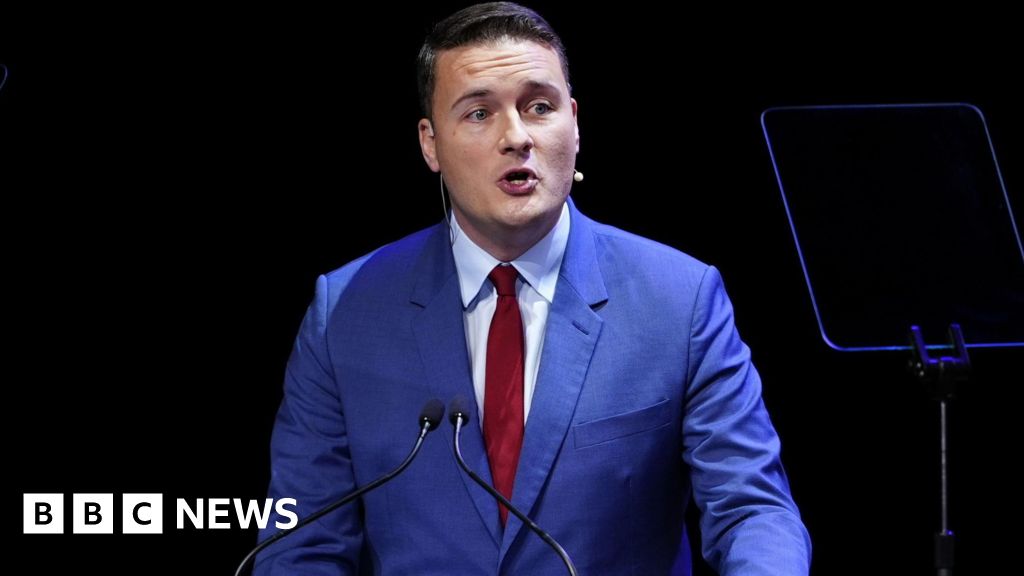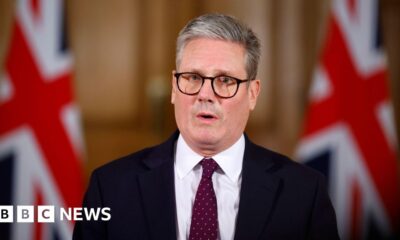Politics
I’m a farmer – and I’m glad to see tax loopholes closing for cynical investor landowners | Guy Singh-Watson
Should multimillionaire landowners benefit from a tax break designed to help small family farms pass down their land to their children? This is a hotly contested question, given last week’s budget. Labour has reintroduced 20% inheritance tax for farms that are valued at more than £1m, meaning the children of farmers will no longer inherit land tax-free. Granted, 20% is still only half of the standard inheritance tax rate, and it probably sounds more than generous to an ex-miner, foundry worker or shipbuilder. But today, £1m would only buy you about 40 hectares (100 acres) of farmland, which is far short of a viable farm.
Farming is a long-term business that requires substantial assets and often makes only meagre returns. Farming families have not had to consider tax planning for family succession since 1992. As a second-generation farmer, I support much of the budget. But on the inheritance tax threshold, I thought, the chancellor, Rachel Reeves, had got it wrong. The positive reading of her decision is that she was trying to close a loophole whereby wealthy people buy up farmland and pass it, tax-free, to their children. If that was the main objective, though, the threshold should have been set substantially higher than £1m.
In most instances, the smallest commercially viable farm is at least 120 hectares (300 acres). If an average land price is £10,000 an acre, then a threshold of £3m would be more appropriate. But then I ran the calculations again. For most farming couples passing on their land and their primary residence to their children, you effectively get this allowance twice. Andy Summers, director at the Centre for the Analysis of Taxation, has shown that for the majority of farms, inheritance tax won’t kick in until the £3m mark (or at least £2m). If this is the case, I’d go further and suggest that inheritance tax is payable at 20% for farms worth more than £3m, and then at 30% on farms worth more than £5m and the full 40% for home farms valued at more than £7m.
Given that Reeves wanted to extract some of the £40bn in tax rises needed to rebuild our country from landowners, another way to do this could have been to look at the 10- to 100-fold increase in land values that occurs when that land is granted planning permission. Farmers who benefit from this uplift can pay no tax whatsoever if the funds are “rolled over”, ie reinvested in land. Taxing these capital gains could arguably raise more than the current policy, and would probably be far less contentious.
Even so, we should be honest about where the loudest opposition to this policy is coming from. The unintended consequence of the tax break given to landowners has been to inflate land prices and effectively exclude new entrants who don’t stand to inherit by making buying your first field unaffordable to most of the people actually doing the farming. Land in the French Vendée – where I have owned a 120-hectare (300-acre) farm for the past 15 years – is less than a 10th of the price of equivalent land in Devon, where I also farm. To be a farmer there, you have to be deemed fit to farm by the local administration. I doubt whether many landowners simply buying up farmland would pass that test. As a farmer of 50 years, I have campaigned vigorously to defend the UK’s family farms. It should offend all farmers with mud on their boots that multimillionaire landowners who are helping to make farming less affordable for genuine farmers are claiming to represent us.
According to research based on HMRC data, between 2018 and 2020, an average of £900m in inheritance tax relief went to about 1,300 estates each year. Almost two-thirds of this went to roughly 200 estates a year that each claimed more than £1m in relief, with an average estate valued at £6m. The government’s own analysis suggests that 73% of estates with agricultural property won’t be affected by the new inheritance tax changes. No one likes paying tax, especially if they have grown used to the privilege of being exempt from it. My views may earn me no friends among my farming peers, but given that most of the benefits of this tax loophole are going to the very richest landowners, closing it seems like a fair change – even if it could have been better designed.
Our country desperately needs investment in its crumbling infrastructure and persistently low productivity. In a nation with ludicrous levels of inequality, and with an ageing population that has shut the door on immigration, it would be a fantasy to think that could be achieved without some people paying more tax. In general, I wish Reeves had been bolder in shifting the tax burden from those who work to those who own wealth. I wish we had gone further in increasing capital gains tax, ideally bringing this up to the same rate as income tax. I would have liked to have seen her at least consider a modest wealth tax on those with assets of more than £10m.
For those who are pushing the hardest against this change to inheritance tax, don’t be fooled: they don’t represent farmers, they represent the super-rich who don’t want to contribute their fair due, and are simply buying up our country to keep more money and assets for themselves.
-
Guy Singh-Watson is the founder of the organic veg box company Riverford and a member of Patriotic Millionaires UK. He grows organic vegetables on 60 hectares (150 acres) in Devon and 120 hectares (300 acres) in the French Vendée. He sold Riverford in 2018 to its 1,000 employees, and the company is now 100% employee-owned
Politics
Council tax bills could rise by 5% after Labour keeps cap in place | Tax and spending

Labour has confirmed council tax rises will be kept at the 5% cap next year, which could mean a rise of £100 for the average family’s bills.
The prime minister’s press secretary said on Wednesday that the threshold by which local authorities can increase bills would “remain the same”. Hours earlier Keir Starmer had dodged a question from Kemi Badenoch, the Conservative leader, at prime minister’s questions about whether he would keep the cap on council tax.
Speaking in the Commons, he said MPs “will know what the arrangements are”. Later on Wednesday, his press secretary said: “The threshold remains the same.”
In the Commons, Badenoch replied: “I think the house would have heard that the prime minister could neither confirm nor deny whether the cap on council tax was being raised.”
A 5% rise would be almost three times above current levels of inflation, which in October fell to 1.7% – the first time it had been below 2% since 2021.
Government statistics show the average band D council tax set by local authorities in England for 2024-25 was £2,171, which represented an increase of £106 or 5.1% on the previous year. For those in the most expensive band H households, last year’s £4,342 bill will increase by £217.
Starmer accused the Tories of leaving local authorities in an “absolutely catastrophic state” after Badenoch pressed the prime minister about the government’s funding plans for cash-strapped councils in England.
The Conservatives cited responses to written parliamentary questions in which ministers said estimated core spending power (CSP) for local government will increase from £64.7bn in 2024-25 to £68.4 bn in 2025-26, with the party adding that the budget was not providing enough new funding to cover this.
Ministers have said the CSP is subject to data changes and final figures will be published as part of the 2025-26 local government finance settlement.
Increases have been capped at 2.99% in recent years, while an extra 2% increase is permitted for councils with social care responsibilities. Councils are able to put up tax rates by up to 5% but would require government permission or a referendum for any bigger increases.
With one in four councils saying in a Local Government Association survey that they were “likely” to need emergency support to stave off bankruptcy in the next two years, increases in council taxes seem likely.
Politics
More than half of general election candidates faced abuse

More than half of the candidates standing in this year’s general election faced abuse, according to a report by the Electoral Commission.
The watchdog said a third of election candidates reported they were intimidated or made to feel unsafe at least once, and more than one in 10 (13%) reported serious threats, abuse or intimidation.
Safeguards were tightened following the murders of MPs Jo Cox in 2016 and Sir David Amess in 2021 and anyone convicted of intimidation offences relating to elections can be banned from holding elected office for five years.
Commons Speaker Sir Lindsay Hoyle has said some of the incidents seen during the July campaign were “clearly unacceptable”.
There were reports of abuse from candidates including slashing tyres, throwing milkshakes and targeting candidates’ families.
The 2024 general election was the first where all 4,515 candidates were offered basic security and had access to a named police officer during the campaign and guidance on respectful campaigning was updated.
Despite this, a survey responded to by 717 candidates found nearly half (46%) reported harassment, intimidation or threats in person as they knocked on doors asking people to vote for them, and a quarter (23%) at a campaign event.
And there is also a growing issue with online abuse, reported by two-thirds of candidates who responded, and the watchdog is also calling for improved online protections.
The Electoral Commission is calling for tougher penalties for criminal acts, tighter political party membership rules, including potential deselection, and a review of whether to bring in secure campaigning zones.
The chief executive of the Electoral Commission, Vijay Rangarajan, said these “crucial improvements” must be put in place ahead of the 2026 Welsh and Scottish elections, and the next UK general election.
He said: “The level of harassment and intimidation faced by candidates is particularly concerning, and requires urgent and coordinated action.
“Those standing for public office should not be subjected to abuse.
“It is deterring some people from standing to be candidates, and inhibiting how some engage with voters – both of which risk weakening our robust democratic debate.”
In particular, Mr Rangarajan said he was concerned at unacceptable levels of intimidation and harassment directed at women and candidates from ethnic minority backgrounds.
Women were twice as likely to report serious abuse as men, with one in five (20%) women compared to one in 10 (11%) men.
Ethnic minorities were more than three times likely to report serious abuse as white people, with 34% reporting this compared to 11% of white people.
Abuse and intimidation can have a significant impact on candidates’ campaign activity, the report added, with 66% of female respondents saying they avoided campaigning alone due to a fear of abuse.
The commission also spoke to four women who had campaigned to become an MP during the general election about their experience, and also took written evidence from MPs and political parties.
They reported a clear feeling they were targeted because of their gender and they were also were more likely than male candidates to report being touched, hugged, or kissed against their will.
One English woman aged 45-54 years old, reported how “full-on” and “really abusive males” would swear at her, which made her stop knocking on doors to speak to people face-to-face.
Instead, she said she would only post leaflets and her husband did most of the door-knocking because “as a male he had a better rapport”.
She added: “I still think that it’s incredibly sad because they obviously don’t respond to a female wanting to put themselves forward.”
Another English woman in the same age bracket reported being touched against her will and threats of harm, amongst other abuse, and said she thought “women bear the brunt of this because we’re perceived as an easier target to convince not to [run]”.
There was also a perception that there was “no point” reporting abuse to the police, and only one in five (21%) of the cases of abuse logged with the watchdog were reported to the police.
The Electoral Commission report focused on July’s general election for the section related to abuse of candidates, but the wider report on findings on voting and online systems also took in findings from the May 2024 Police and Crime Commissioner elections in England and Wales, as well as local and mayoral elections in England.
Politics
P&O Ferries spent £47m on mass layoffs amid financial woes, accounts show | P&O Ferries
P&O Ferries spent more than £47m on sacking hundreds of UK seafarers in 2022, according to its long overdue accounts that will be published in the coming days.
The filings, which the Guardian has seen, confirm the financial cost of the company’s actions two and a half years ago when it outraged the public and parliament by dismissing 786 mainly British ferry workers – and then largely replacing them with low-cost agency staff from countries including India, the Philippines and Malaysia.
The scandal re-emerged last month when the prime minister, Keir Starmer, rebuked his transport secretary, Louise Haigh, after she referred to the ferry operator as a “rogue operator”. DP World, P&O’s Dubai-based owner, had reportedly threatened to pull out of a £1bn investment in the UK on the back of the comments.
P&O had always argued it had been forced into the sackings in order to save the company. The long-awaited accounts, which are almost 11 months late, illustrate the dire financial condition of the business.
The document outlines how P&O has been “in breach of covenants with respect to its external debt”, and was forced to increase its overdraft facility with its parent company DP World to £365m, up from £295m. The company also sold off one of its vessels in order to raise a further £77m in financing.
A spokesperson for P&O Ferries said: “Our 2022 financial accounts show the challenges faced by the business at that time and why the business needed to transform into a competitive operator with a sustainable long-term future.
“P&O Ferries has taken steps to adjust to new market conditions, matching our capacity to demand and adopting a more flexible operating model that enables us to better serve our customers.”
However, the accounts make a nod to the damage to the brand with travellers after the 2022 layoffs, when the company’s lack of consultation before the sackings led to the ferry operator being accused of breaking employment law.
A Guardian and ITV News investigation revealed in March this year that the new staff were earning as little as £4.87 an hour, when the company had previously suggested the lowest pay rate was £5.15 an hour after the sackings. P&O later admitted to parliament that the Guardian and ITV’s figure was correct.
The ferry operator had used a loophole, exempting seafarers from minimum wage legislation, in order to pay its staff below the UK and French minimum wage rates. However, that option was closed off in March this year, when the French government implemented a law aimed at preventing the exploitation of cross-Channel workers.
The P&O accounts also said that a civil investigation by a government agency into the company’s conduct during the 2022 sackings was “ongoing”, but remained at the “information gathering stage”, although the company’s directors appear to be confident that no action will be taken.
after newsletter promotion
“The Insolvency Service would need to show that any action it proposed to take was in the public interest and just and equitable,” the accounts said.
“That threshold is high, and the directors consider that the threshold would not be met in this case.”
Overall, P&O’s pre-tax losses fell to £246m during 2022, down from £375m the previous year. Despite the challenging year, revenues rose by £84m to £919m.
Politics
Legalisation of assisted dying may force NHS cuts, Wes Streeting warns | Politics
Civil servants are looking at the extra costs which assisted dying would put on the NHS amid a warning from Wes Streeting that some services may be cut to fund expanded end-of-life care.
The health secretary has asked officials at the Department of Health and Social Care to analyse the potential “implications” for NHS services if the right to die is legalised in England and Wales.
Their work is underway amid an increasing focus on how the NHS would cope with helping what the MP spearheading the push for assisted dying believes would be hundreds of people a year who have just six months or less to live to end their life early.
DHSC officials have already begun examining the costs of the practicalities involved, which could involve expanding the services provided by hospitals or district nurses, for example.
The disclosure comes after Streeting made clear his view that legalisation could force the health service to make difficult decisions about funding some existing services.
“There would be resource implications for doing it. And those choices would come at the expense of other choices”, he told Times Radio earlier on Wednesday.
Asked if he would have to find the money to fund an extension of palliative care from elsewhere in the NHS budget, Streeting replied: “Yep. To govern is to choose. If parliament decides to go ahead with assisted dying, it is making a choice that this is an area to prioritise for investment.
“And we’d have to work through those implications.”
Later on Wednesday, speaking to the media at the NHS Providers conference in Liverpool, Streeting again highlighted his belief that legalisation could put pressure on the NHS budget.
“I’ve asked my department to look at the cost” of providing more end-of-life care, he said.
“Now that we’ve seen the bill published, I’ve asked my department to look at the costs that would be associated with providing a new service to enable assisted dying to go forward.
“That work is now under way, so I can’t give you a precise figure today. I’ve asked the department to look at the cost of implementing the bill as it is currently laid before parliament.”
Pressed on what services might lose funding for enhanced palliative care, he declined to specify any. But, he added: “There are choices and trade-offs. Any new service comes at the expense of other competing pressures and priorities.”
Streeting – who plans to vote against assisted dying – also voiced his fear that it might see some people with a terminal diagnosis choosing to end their lives early as a way of saving the NHS money.
“You do touch on the slippery slope argument, which is the potential for cost savings if people choose to opt for assisted dying rather than stay in the care of the care providers or the NHS,” he said in answer to a question.
after newsletter promotion
“I think that is a chilling slippery slope argument, and I would hate for people to opt for assisted dying because they think they’re saving someone somewhere money, whether that’s relatives or the NHS. I think that’s one of the issues MPs are wrestling with as they decide how to cast their vote.”
MPs weighing up their stance on the Terminally Ill Adults (End of Life) Bill should not necessarily vote against it because of that potential competition for resources within the NHS, and should consider all the arguments about assisted dying, he added.
But, referencing the tightness of public finances, he again stressed the potential dilemmas facing the NHS if legalisation happens, saying: “We do need to be in the business of making choices.”
Interviewed on BBC Radio 4’s Today programme, Streeting said the NHS could ramp up the palliative care system in order for it to take on the responsibilities assisted dying would entail. He has previously stated that palliative care was not “where it needs to be to give people a real choice”.
Streeting plans to vote against Labour MP Kim Leadbeater’s bill when it comes before parliament on 29 November, in what will be the first House of Commons vote on the issue since 2015.
Downing Street would not be drawn into saying whether the health secretary was right to raise the spectre of assisted dying law coming at the expense of other NHS services.
Asked about Streeting’s remarks, Dave Pares said: “Ultimately, this is a matter for parliament to decide and that is why it is going to be a free vote, and parliament will debate the principles and merits of assisted dying and the issues surrounding the bill.”
Politics
Trump team hostile to Chagos deal, claims Nigel Farage

 Getty Images
Getty ImagesThe UK’s deal to cede sovereignty of the Chagos Islands to Mauritius will be met with “outright hostility” by the Trump administration, Nigel Farage has predicted.
The Reform UK leader, a supporter and friend of the incoming US president, told MPs the agreement would put the UK at odds with an important ally.
He added that Donald Trump’s advisers had security concerns, amid claims the deal could boost China’s influence in the region.
But Foreign Office minister Stephen Doughty said he was confident the “full detail” of the arrangement would allay concerns.
It had won backing “across the national security apparatus in the United States”, he added.
Under the deal, the UK will hand over sovereignty of the islands while retaining control over a joint UK-US military base on the island of Diego Garcia, for an “initial period” of 99 years.
The UK government says the accord, which it hopes to ratify next year, will end legal uncertainty over the islands following international rulings backing Mauritian claims to sovereignty.
But the strategic importance of the archipelago, known officially as the British Indian Ocean Territory, has prompted criticism that the agreement will deliver a security boost to China.
A number of US Republicans have attacked the deal, which has been backed by the outgoing Biden government, although Trump himself has not commented publicly on it.
‘Vacuum’ warning
Speaking in the Commons, Farage said the UK would find “outright hostility” to the deal among the next US administration, adding it had been an “enormous mistake” to sign up to it before last week’s presidential election.
He said he knew this because of time he had spent in America in the aftermath of the election, and because he knew the incoming defence secretary, Fox News host Pete Hegseth, “very well”.
He added that Michael Waltz, expected to become Trump’s national security adviser, “has form” on the topic, having written a letter to Biden’s secretary of state Antony Blinken in 2022 during talks under the previous Tory government.
In the letter, published on his website at the time, the Republican congressman warned that China would “take advantage of the resulting vacuum” if the UK handed over sovereignty of the islands.
“Diego Garcia was described to me by a senior Trump adviser as the most important island on the planet, as far as America was concerned,” Farage told MPs.
He said continuing with the deal would put the UK “at conflict with a country without which we would be defenceless”.
‘Not sustainable’
Doughty dismissed Farage’s criticism, arguing legal uncertainty over the Chagos Islands threatened the “secure and effective operation” of the base on Diego Garcia.
He added that given previous findings against the UK, a legally binding ruling siding with Mauritian sovereignty claims “seemed inevitable” at some point, creating legal uncertainty over the base that was “not sustainable”.
He said the deal contained measures to prevent foreign presence in the “outer islands”, and had also been welcomed by all parts of “the US system”.
He added the UK was looking forward to working with the Trump administration, saying: “I’m sure that they will being briefed on the full detail of this deal.
“I am confident that the details of this arrangement will allay any concerns.”
Negotiations on a deal began under the previous Conservative government in 2022, but several senior Tories have also spoken out against the deal.
Shadow foreign secretary Dame Priti Patel, who left government two months before negotiations began under Rishi Sunak, said the accord would “give away a key strategic asset” in the Indian Ocean.
Other Tories to have criticised the deal include James Cleverly, who took part in negotiations himself as foreign secretary but has since described Labour’s proposed agreement as “weak”.
Politics
Assisted dying law would hit other NHS services, Wes Streeting warns

Implementing a new assisted dying law would come at the expense of other NHS services, the health secretary has suggested.
Wes Streeting, who once supported assisted dying, plans to vote against the new Terminally Ill Adults (End of Life) Bill later this month, arguing the government should focus on improving end-of-life care.
The bill, published on Monday, would allow terminally ill adults expected to die within six months to seek help to end their life if two doctors and a High Court judge verify they are eligible and have made their decision voluntarily.
Streeting told Times Radio on Wednesday the policy would have “resource implications” which would “come at the expense of other choices”.
Asked whether he would have to find money from elsewhere if the bill became law, Streeting said: “Yep, to govern is to choose.
“If Parliament chooses to go ahead with assisted dying, it is making a choice that this is an area to prioritise for investment. And we’d have to work through those implications.”
Streeting said the health service would “need to work through with the medical profession what would be a very new way of working”.
“No one should be compelled, for example, to take part in assisted dying if they’ve got moral or ethical objections as clinicians. That certainly would be one of my red lines”.
Streeting has repeatedly expressed his view that the palliative care system is not “where it needs to be to give people a real choice”.
The assisted dying bill has been introduced by Labour MP Kim Leadbeater, who argues her legislation is the “most robust” in the world. She has said she expects hundreds of dying people to apply if it is available.
Critics of her measure have raised fears of coercion and a slippery slope to wider legislation taking in more people.
Speaking on Tuesday, Leadbeater rejected these claims, saying her bill had “three layers of scrutiny,” requiring sign-offs from two doctors and a High Court judge, and made coercion punishable by up to 14 years in prison.
Only terminally-ill adults with less than six months to live who have a settled wish to end their lives would be eligible under the new law.
MPs are scheduled to debate and vote on the bill on 29 November.
The prime minister, a former director of public prosecutions, has previously supported assisted dying, but the government has pledged to remain neutral on the issue, and MPs are being allowed to vote according to their conscience rather than along party lines.
This will be the first Commons vote on assisted dying since MPs rejected allowing terminally ill adults to end their lives under medical supervision in 2015. As a backbench Labour MP, Streeting voted in favour of that measure.
If the bill passes its first vote later this month, it will receive further scrutiny from MPs and peers, who could choose to amend it.
-

 Science & Environment2 months ago
Science & Environment2 months agoHow to unsnarl a tangle of threads, according to physics
-

 Technology2 months ago
Technology2 months agoWould-be reality TV contestants ‘not looking real’
-

 Technology2 months ago
Technology2 months agoIs sharing your smartphone PIN part of a healthy relationship?
-

 Science & Environment2 months ago
Science & Environment2 months agoHyperelastic gel is one of the stretchiest materials known to science
-

 Science & Environment2 months ago
Science & Environment2 months ago‘Running of the bulls’ festival crowds move like charged particles
-

 Science & Environment2 months ago
Science & Environment2 months agoX-rays reveal half-billion-year-old insect ancestor
-

 Science & Environment2 months ago
Science & Environment2 months agoPhysicists have worked out how to melt any material
-

 News1 month ago
News1 month ago‘Blacks for Trump’ and Pennsylvania progressives play for undecided voters
-

 MMA1 month ago
MMA1 month ago‘Dirt decision’: Conor McGregor, pros react to Jose Aldo’s razor-thin loss at UFC 307
-

 News1 month ago
News1 month agoWoman who died of cancer ‘was misdiagnosed on phone call with GP’
-

 Money1 month ago
Money1 month agoWetherspoons issues update on closures – see the full list of five still at risk and 26 gone for good
-

 Sport1 month ago
Sport1 month agoAaron Ramsdale: Southampton goalkeeper left Arsenal for more game time
-

 Football1 month ago
Football1 month agoRangers & Celtic ready for first SWPL derby showdown
-

 Sport1 month ago
Sport1 month ago2024 ICC Women’s T20 World Cup: Pakistan beat Sri Lanka
-
Business1 month ago
how UniCredit built its Commerzbank stake
-

 Science & Environment2 months ago
Science & Environment2 months agoA new kind of experiment at the Large Hadron Collider could unravel quantum reality
-

 Science & Environment2 months ago
Science & Environment2 months agoMaxwell’s demon charges quantum batteries inside of a quantum computer
-

 Science & Environment2 months ago
Science & Environment2 months agoSunlight-trapping device can generate temperatures over 1000°C
-

 Science & Environment2 months ago
Science & Environment2 months agoLiquid crystals could improve quantum communication devices
-

 Technology1 month ago
Technology1 month agoUkraine is using AI to manage the removal of Russian landmines
-

 Technology1 month ago
Technology1 month agoSamsung Passkeys will work with Samsung’s smart home devices
-
Business1 month ago
Top shale boss says US ‘unusually vulnerable’ to Middle East oil shock
-

 Science & Environment2 months ago
Science & Environment2 months agoQuantum forces used to automatically assemble tiny device
-

 Science & Environment2 months ago
Science & Environment2 months agoLaser helps turn an electron into a coil of mass and charge
-

 MMA1 month ago
MMA1 month agoPereira vs. Rountree prediction: Champ chases legend status
-

 News1 month ago
News1 month agoMassive blasts in Beirut after renewed Israeli air strikes
-

 News1 month ago
News1 month agoNavigating the News Void: Opportunities for Revitalization
-

 Science & Environment2 months ago
Science & Environment2 months agoWhy this is a golden age for life to thrive across the universe
-

 Technology2 months ago
Technology2 months agoRussia is building ground-based kamikaze robots out of old hoverboards
-

 Technology1 month ago
Technology1 month agoGmail gets redesigned summary cards with more data & features
-

 News1 month ago
News1 month agoCornell is about to deport a student over Palestine activism
-

 Technology1 month ago
Technology1 month agoSingleStore’s BryteFlow acquisition targets data integration
-

 Science & Environment2 months ago
Science & Environment2 months agoQuantum ‘supersolid’ matter stirred using magnets
-

 Technology1 month ago
Technology1 month agoMicrophone made of atom-thick graphene could be used in smartphones
-

 Sport1 month ago
Sport1 month agoBoxing: World champion Nick Ball set for Liverpool homecoming against Ronny Rios
-

 Entertainment1 month ago
Entertainment1 month agoBruce Springsteen endorses Harris, calls Trump “most dangerous candidate for president in my lifetime”
-

 Technology1 month ago
Technology1 month agoEpic Games CEO Tim Sweeney renews blast at ‘gatekeeper’ platform owners
-

 Sport1 month ago
Sport1 month agoShanghai Masters: Jannik Sinner and Carlos Alcaraz win openers
-

 Money1 month ago
Money1 month agoTiny clue on edge of £1 coin that makes it worth 2500 times its face value – do you have one lurking in your change?
-

 Business1 month ago
Business1 month agoWater companies ‘failing to address customers’ concerns’
-

 MMA1 month ago
MMA1 month agoPennington vs. Peña pick: Can ex-champ recapture title?
-

 Technology2 months ago
Technology2 months agoMeta has a major opportunity to win the AI hardware race
-

 MMA1 month ago
MMA1 month agoDana White’s Contender Series 74 recap, analysis, winner grades
-

 MMA1 month ago
MMA1 month agoKayla Harrison gets involved in nasty war of words with Julianna Pena and Ketlen Vieira
-

 Sport1 month ago
Sport1 month agoAmerica’s Cup: Great Britain qualify for first time since 1964
-

 Technology1 month ago
Technology1 month agoMicrosoft just dropped Drasi, and it could change how we handle big data
-

 Technology1 month ago
Technology1 month agoLG C4 OLED smart TVs hit record-low prices ahead of Prime Day
-

 Science & Environment2 months ago
Science & Environment2 months agoITER: Is the world’s biggest fusion experiment dead after new delay to 2035?
-

 News2 months ago
News2 months ago▶️ Hamas in the West Bank: Rising Support and Deadly Attacks You Might Not Know About
-

 News1 month ago
News1 month agoHarry vs Sun publisher: ‘Two obdurate but well-resourced armies’
-

 Sport1 month ago
Sport1 month agoWXV1: Canada 21-8 Ireland – Hosts make it two wins from two
-

 MMA1 month ago
MMA1 month ago‘Uncrowned queen’ Kayla Harrison tastes blood, wants UFC title run
-

 Football1 month ago
Football1 month ago'Rangers outclassed and outplayed as Hearts stop rot'
-

 Science & Environment2 months ago
Science & Environment2 months agoNerve fibres in the brain could generate quantum entanglement
-

 Science & Environment2 months ago
Science & Environment2 months agoNuclear fusion experiment overcomes two key operating hurdles
-

 Technology2 months ago
Technology2 months agoWhy Machines Learn: A clever primer makes sense of what makes AI possible
-

 Technology2 months ago
Technology2 months agoUniversity examiners fail to spot ChatGPT answers in real-world test
-
Travel1 month ago
World of Hyatt welcomes iconic lifestyle brand in latest partnership
-

 News1 month ago
News1 month agoRwanda restricts funeral sizes following outbreak
-

 Technology1 month ago
Technology1 month agoCheck, Remote, and Gusto discuss the future of work at Disrupt 2024
-

 Sport1 month ago
Sport1 month agoURC: Munster 23-0 Ospreys – hosts enjoy second win of season
-

 Sport1 month ago
Sport1 month agoNew Zealand v England in WXV: Black Ferns not ‘invincible’ before game
-

 TV1 month ago
TV1 month agoসারাদেশে দিনব্যাপী বৃষ্টির পূর্বাভাস; সমুদ্রবন্দরে ৩ নম্বর সংকেত | Weather Today | Jamuna TV
-
Business1 month ago
It feels nothing like ‘fine dining’, but Copenhagen’s Kadeau is a true gift
-
Business1 month ago
Italy seeks to raise more windfall taxes from companies
-
Business1 month ago
The search for Japan’s ‘lost’ art
-

 Business1 month ago
Business1 month agoWhen to tip and when not to tip
-

 News1 month ago
News1 month agoHull KR 10-8 Warrington Wolves – Robins reach first Super League Grand Final
-

 Sport1 month ago
Sport1 month agoPremiership Women’s Rugby: Exeter Chiefs boss unhappy with WXV clash
-
Politics1 month ago
‘The night of the living dead’: denial-fuelled Tory conference ends without direction | Conservative conference
-

 Science & Environment2 months ago
Science & Environment2 months agoA tale of two mysteries: ghostly neutrinos and the proton decay puzzle
-

 MMA1 month ago
MMA1 month agoHow to watch Salt Lake City title fights, lineup, odds, more
-

 Sport1 month ago
Sport1 month agoSnooker star Shaun Murphy now hits out at Kyren Wilson after war of words with Mark Allen
-

 MMA1 month ago
MMA1 month agoStephen Thompson expects Joaquin Buckley to wrestle him at UFC 307
-

 Sport1 month ago
Sport1 month agoHow India became a Test cricket powerhouse
-

 Sport1 month ago
Sport1 month agoFans say ‘Moyes is joking, right?’ after his bizarre interview about under-fire Man Utd manager Erik ten Hag goes viral
-

 Science & Environment2 months ago
Science & Environment2 months agoA slight curve helps rocks make the biggest splash
-

 Technology1 month ago
Technology1 month agoNintendo’s latest hardware is not the Switch 2
-

 News1 month ago
News1 month agoCrisis in Congo and Capsizing Boats Mediterranean
-

 Money1 month ago
Money1 month agoThe four errors that can stop you getting £300 winter fuel payment as 880,000 miss out – how to avoid them
-

 TV1 month ago
TV1 month agoTV Patrol Express September 26, 2024
-

 Football1 month ago
Football1 month agoFifa to investigate alleged rule breaches by Israel Football Association
-

 Football1 month ago
Football1 month agoWhy does Prince William support Aston Villa?
-

 News1 month ago
News1 month ago▶ Hamas Spent $1B on Tunnels Instead of Investing in a Future for Gaza’s People
-

 Technology1 month ago
Technology1 month agoSamsung Galaxy Tab S10 won’t get monthly security updates
-

 News2 months ago
News2 months ago▶️ Media Bias: How They Spin Attack on Hezbollah and Ignore the Reality
-

 Science & Environment2 months ago
Science & Environment2 months agoHow to wrap your mind around the real multiverse
-

 News1 month ago
News1 month agoUK forces involved in response to Iran attacks on Israel
-

 Technology1 month ago
Technology1 month agoMusk faces SEC questions over X takeover
-

 Sport1 month ago
Sport1 month agoChina Open: Carlos Alcaraz recovers to beat Jannik Sinner in dramatic final
-
Business1 month ago
Bank of England warns of ‘future stress’ from hedge fund bets against US Treasuries
-

 Technology1 month ago
Technology1 month agoJ.B. Hunt and UP.Labs launch venture lab to build logistics startups
-

 Sport1 month ago
Sport1 month agoSturm Graz: How Austrians ended Red Bull’s title dominance
-

 Sport1 month ago
Sport1 month agoBukayo Saka left looking ‘so helpless’ in bizarre moment Conor McGregor tries UFC moves on Arsenal star
-

 Sport1 month ago
Sport1 month agoCoco Gauff stages superb comeback to reach China Open final
-

 Sport1 month ago
Sport1 month agoMan Utd fans prepare for ‘unholy conversations’ as Scott McTominay takes just 25 seconds to score for Napoli again
-

 Sport1 month ago
Sport1 month agoPhil Jones: ‘I had to strip everything back – now management is my focus’
-

 Sport4 weeks ago
Sport4 weeks agoSunderland boss Regis Le Bris provides Jordan Henderson transfer update 13 years after £20m departure to Liverpool
-

 Womens Workouts2 months ago
Womens Workouts2 months ago3 Day Full Body Women’s Dumbbell Only Workout
-

 Science & Environment2 months ago
Science & Environment2 months agoTime travel sci-fi novel is a rip-roaringly good thought experiment


You must be logged in to post a comment Login